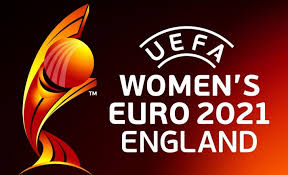April 23 – UEFA have confirmed that next summer’s women’s European Championship in England has been postponed for a year as a result of the knock-on effect of Covid-19.
The tournament was always expected to be shifted after the men’s Euro 2020 and the Tokyo Olympics were both postponed until 2021.
Three European teams – England, the Netherlands and Sweden – have already qualified for the Olympics which includes women’s football so moving the women’s Euros to 2022 will avoid two female football competitions in the same summer.
The move was rubber-stamped today by UEFA’s executive committee which announced the dates will be July 6 – 31, 2022. It is planned to use the same venues that were originally proposed to host the event.
Commenting on the rescheduling, UEFA president Aleksander Čeferin said: “When we had to take an urgent decision on the postponement of UEFA EURO 2020, we always had the impact on UEFA Women’s EURO 2021 in mind.
“We have carefully considered all options, with our commitment to the growth of women’s football at the forefront of our thinking.
“By moving UEFA Women’s EURO to the following year, we are ensuring that our flagship women’s competition will be the only major football tournament of the summer, providing it with the spotlight it deserves.”
UEFA’s chief of women’s football, Nadine Kessler, commented: “The core question guiding us together with the English FA was: What is best for women’s football?
“With the Olympics now being confirmed for summer 2021, we firmly believe that moving to 2022 is in the best interests of the tournament, the players, the fans, women’s football partners and everybody involved in all areas and at all levels of the game. UEFA Women’s EURO is Europe’s biggest women’s sport event. It is also among the biggest sports events in the world, and therefore needs and deserves a platform of its own.
“This decision puts us in a position to deliver a tournament that attracts global attention, maximises media coverage and increases stadium attendances, and is therefore helping us to meet our core objective of inspiring the next generation of footballers.
“2022 also allows for further promotion and partner activation, which would have been much more difficult in what is now a crowded summer in 2021. It is a clear sign of commitment to our dedicated partners who have joined us since we decided to separate the sponsorship of women’s football from men’s football.”
Contact the writer of this story at moc.l1713979690labto1713979690ofdlr1713979690owedi1713979690sni@w1713979690ahsra1713979690w.wer1713979690dna1713979690

